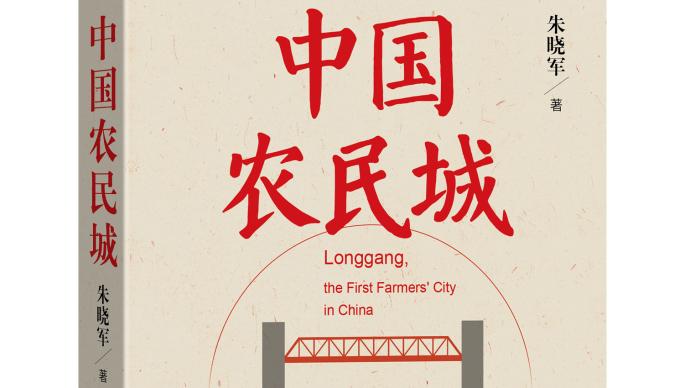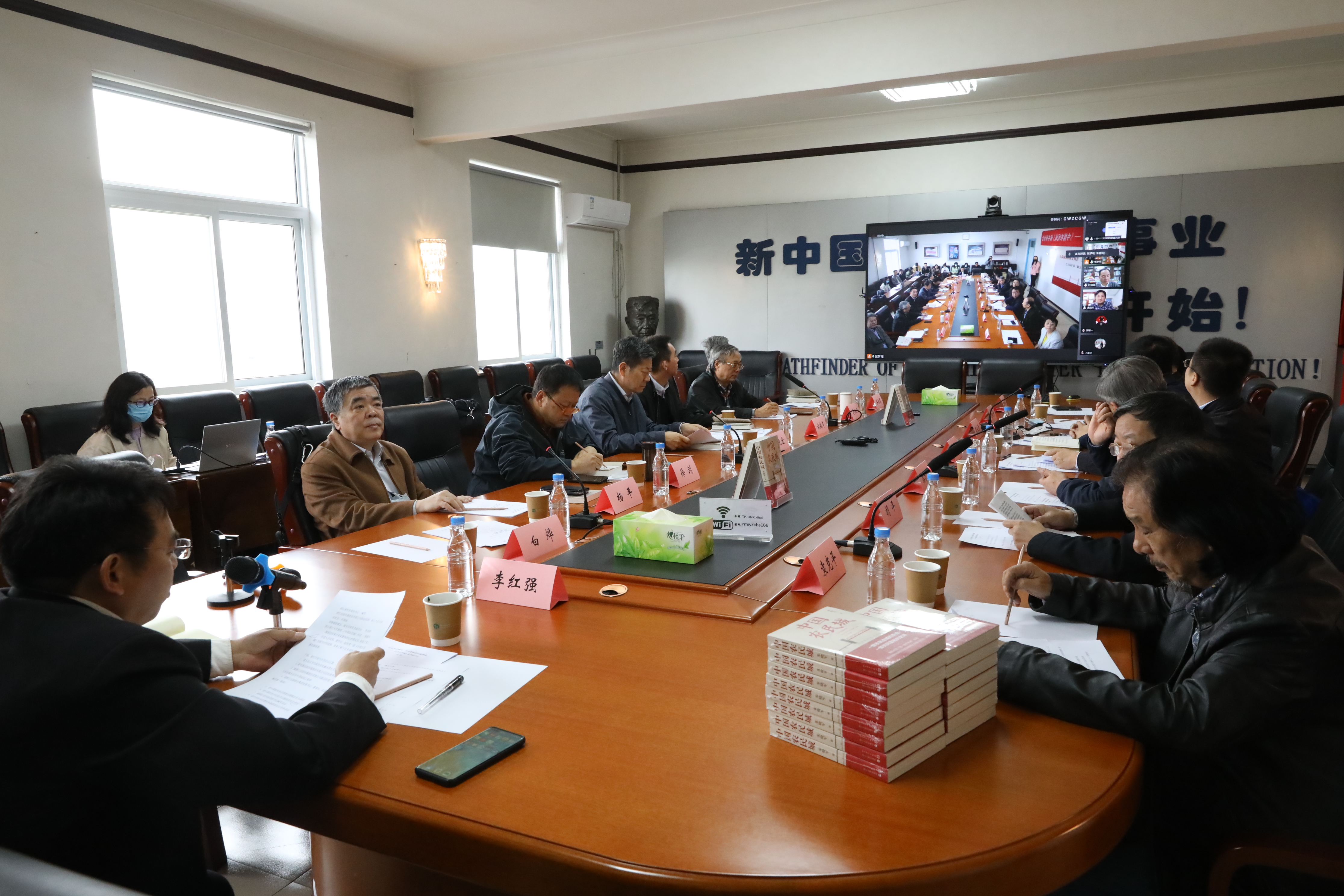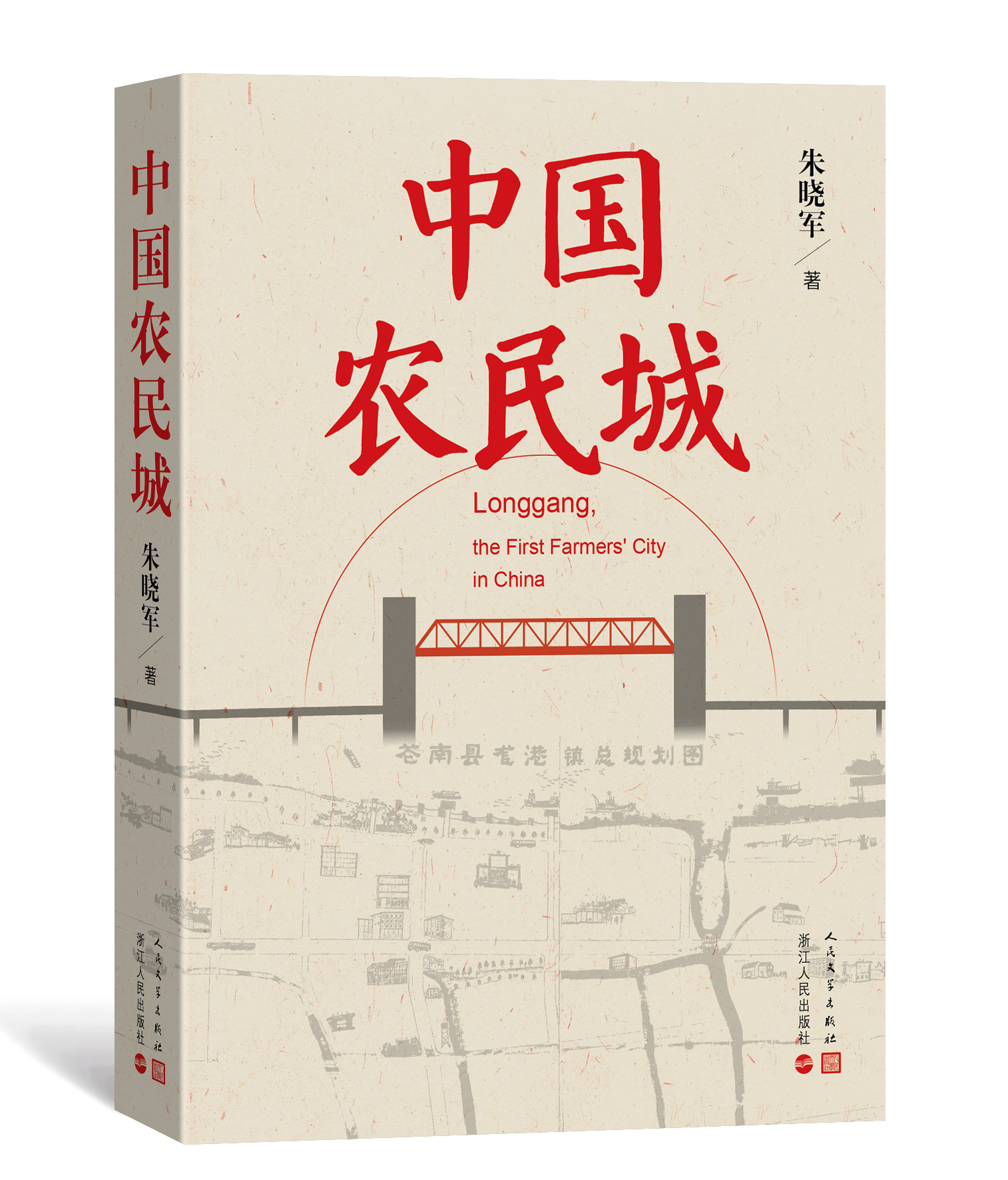
There are two miracles in the history of urban construction in China, namely Shenzhen, Guangdong and Longgang, Zhejiang.
In 1979, before Shenzhen was established as a city, the population of Bao'an County in Guangdong Province was 300,000. Forty years later, Shenzhen has become a sub-provincial city with a permanent population of 13.4388 million and one of the four major central cities in the Guangdong-Hong Kong-Macao Greater Bay Area. Since 2017, Shenzhen's GDP has surpassed the provincial capital Guangzhou for four consecutive years, ranking third in the country. And Zhejiang Longgang is a veritable "city developed from a fishing village". In the early 1980s, under Fangyan, located on the south bank of Aojiang Town, Pingyang County, Wenzhou were just a few fishing villages with "lights off, water unclear, and uneven ground", with a population of less than 6,000, no electricity, no running water, and even Not an inch of road.
The recently published reportage work "China Peasant City" focuses on the city of Longgang, telling the history of Longgang's development from a small fishing village to China's first peasant city.
The rise of Longgang is different from Shenzhen, which was built with the power of the whole country. "Longgang, driven by grassroots initiative and reform promotion, market initiative and policy dividends, took the lead in launching the household registration system, paid land use, and the development of individual and private economy three. The major reform has achieved important results in economic and social development, administrative system reform, urban governance innovation, etc., providing a model for the comprehensive reform of small towns in China." The author of "China Farmers City", Professor Zhu Xiaojun of Zhejiang Sci-Tech University believes that Longgang is the most The great thing is that even though it was not included in the national capital construction plan, it still found a new way to create a miracle in the history of urban construction in China and even in the world - farmers raised funds to build a city, a group of farmers in Longgang, Wenzhou, Zhejiang, in just 40 years, not only The dream of peasants entering the city has been realized, and the miracle of peasants building the city has been created.
On the occasion of the publication of the new book "China Peasant City", the People's Literature Publishing House and Zhejiang People's Publishing House jointly held a seminar, and the participating experts and scholars shared it.
Yan Xiaohong, chairman of the China Copyright Association, noticed the reform practice in "China Farmers City". He believes that the local management in Longgang is very scientific. We generally adopt a set of management with a long chain, but they are very simple and flat. They have the management awareness of modern enterprises, so their efficiency and efficiency are very high, which is also very enlightening. In addition, there is a group of people throughout the book, especially Chen Dingmo, who is like a soul-like figure in this book.
Longgang is taking a road from rural to urbanization, and the goal of urbanization and the construction of urbanization are actually one of the important indicators of social modernization. From the original small fishing village, it now has four gold business cards of "national brand name", "China Printing City", "China Gift City", "China Printing Materials Trading Center" and "China Taiwan Calendar Distribution Center". Pan Kaixiong, former vice president of China Publishing Group, concluded, "Although today, these four national-character business cards are facing the problem of transformation under the tide of digitalization, the history of Longgang reform described by Zhu Xiaojun is related to the modernization of the entire country. Synchronous, even leading in some directions. It's all embedded in his narrative."
Returning to the discussion on the topic of "peasants building a city", Li Bingyin believes that the biggest feature of Longgang's development is that farmers voluntarily and spontaneously build a city with their own money, and the local people have many unique wisdoms, such as building a city, the land cannot be used casually, They just figured out a way to walk the swamp and move forward in a changing way.
"China Farmers Town" is about to be made into a 36-episode TV series called "City Makers".
In 1979, before Shenzhen was established as a city, the population of Bao'an County in Guangdong Province was 300,000. Forty years later, Shenzhen has become a sub-provincial city with a permanent population of 13.4388 million and one of the four major central cities in the Guangdong-Hong Kong-Macao Greater Bay Area. Since 2017, Shenzhen's GDP has surpassed the provincial capital Guangzhou for four consecutive years, ranking third in the country. And Zhejiang Longgang is a veritable "city developed from a fishing village". In the early 1980s, under Fangyan, located on the south bank of Aojiang Town, Pingyang County, Wenzhou were just a few fishing villages with "lights off, water unclear, and uneven ground", with a population of less than 6,000, no electricity, no running water, and even Not an inch of road.
The recently published reportage work "China Peasant City" focuses on the city of Longgang, telling the history of Longgang's development from a small fishing village to China's first peasant city.
The rise of Longgang is different from Shenzhen, which was built with the power of the whole country. "Longgang, driven by grassroots initiative and reform promotion, market initiative and policy dividends, took the lead in launching the household registration system, paid land use, and the development of individual and private economy three. The major reform has achieved important results in economic and social development, administrative system reform, urban governance innovation, etc., providing a model for the comprehensive reform of small towns in China." The author of "China Farmers City", Professor Zhu Xiaojun of Zhejiang Sci-Tech University believes that Longgang is the most The great thing is that even though it was not included in the national capital construction plan, it still found a new way to create a miracle in the history of urban construction in China and even in the world - farmers raised funds to build a city, a group of farmers in Longgang, Wenzhou, Zhejiang, in just 40 years, not only The dream of peasants entering the city has been realized, and the miracle of peasants building the city has been created.
On the occasion of the publication of the new book "China Peasant City", the People's Literature Publishing House and Zhejiang People's Publishing House jointly held a seminar, and the participating experts and scholars shared it.

Seminar site
Zang Yongqing, president of the People's Literature Publishing House, recalled the planning process of the topic selection of "China Farmers City": "In 2019, when several editors came back from Longgang to report their topic selection to me, I had an intuition that this would be a great topic selection. In 2019, Longgang has just been withdrawn from the town and established as a city. This young city is shocking, and it also makes countless people wonder how this place, which was a small fishing village forty years ago, and where everyone could not get enough to eat, has rapidly developed into a modern city. And can Longgang's future also withstand the test of urban development?" This is also the question of the author Zhu Xiaojun, with this question, he entered Longgang.Yan Xiaohong, chairman of the China Copyright Association, noticed the reform practice in "China Farmers City". He believes that the local management in Longgang is very scientific. We generally adopt a set of management with a long chain, but they are very simple and flat. They have the management awareness of modern enterprises, so their efficiency and efficiency are very high, which is also very enlightening. In addition, there is a group of people throughout the book, especially Chen Dingmo, who is like a soul-like figure in this book.

"China Peasant City"
Liang Hongying also paid attention to the representative character of the town party committee secretary Chen Dingmo in the book, "In the eyes of the people at the time, this was an alternative and controversial figure, but he was drastic, and whatever was conducive to the development of the cause, whatever was conducive to the The peasants do the city building and dare to try first. Other ordinary people, such as Chen Zhizhi, Chen Ruixing, Chen Changxu, etc., have no restricted areas in their life, and they are willing to try many things. For example, Chen Changxu used the food stamps to earn the price difference for food, and the waste for banknotes. In the process of creating history, these people also created new experiences. This also reflects that in the overall atmosphere of the 1980s, China's urban and rural areas, Rural and social trends of thought play a very important role in the development of various undertakings.”Longgang is taking a road from rural to urbanization, and the goal of urbanization and the construction of urbanization are actually one of the important indicators of social modernization. From the original small fishing village, it now has four gold business cards of "national brand name", "China Printing City", "China Gift City", "China Printing Materials Trading Center" and "China Taiwan Calendar Distribution Center". Pan Kaixiong, former vice president of China Publishing Group, concluded, "Although today, these four national-character business cards are facing the problem of transformation under the tide of digitalization, the history of Longgang reform described by Zhu Xiaojun is related to the modernization of the entire country. Synchronous, even leading in some directions. It's all embedded in his narrative."
Returning to the discussion on the topic of "peasants building a city", Li Bingyin believes that the biggest feature of Longgang's development is that farmers voluntarily and spontaneously build a city with their own money, and the local people have many unique wisdoms, such as building a city, the land cannot be used casually, They just figured out a way to walk the swamp and move forward in a changing way.
"China Farmers Town" is about to be made into a 36-episode TV series called "City Makers".
Related Posts